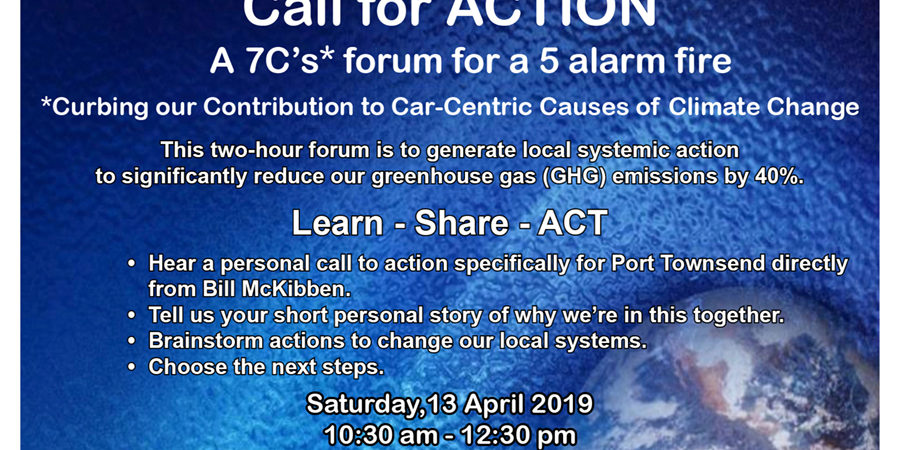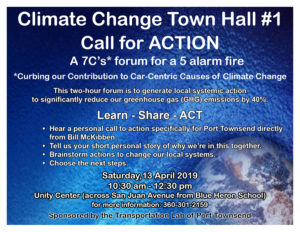Over fifty people gathered for the Transportation Lab’s Climate Change Town Hall #1 on Saturday, April 13, 2019. The intent of the two-hour session at the Unity Center was to generate local systemic action toward the goal of a 40% reduction in greenhouse gas emissions. Five citizen leaders shared personal stories of activism before the floor was opened to those eager to share their own one-minute narratives.
Scott Walker presented excerpts from several local climate action and transportation plans that were developed over the past 15 years but remain unimplemented. TLab Chair Dave Thielk then introduced a brainstorming activity to identify transportation policies that most strongly interested participants. An analysis of the results will be posted on this blog. We will move into action on our priorities at a follow-on Town Hall is scheduled for Saturday, May 11.
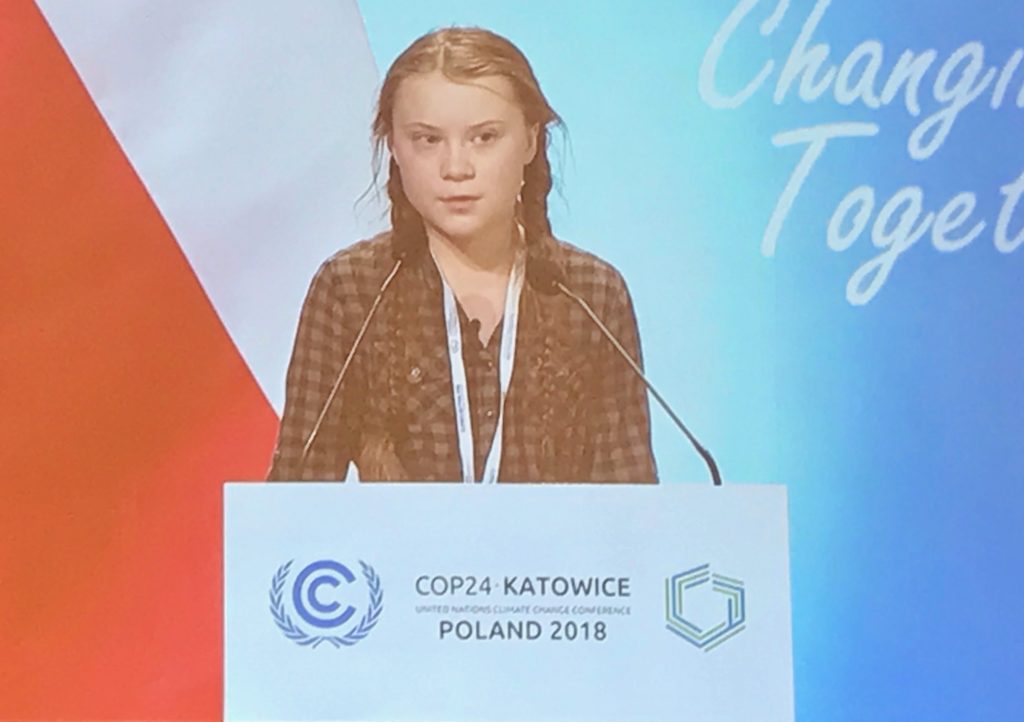
The first “speaker” of the morning was 16 year old Swedish climate activist Greta Thunberg on video, giving her powerful 4-minute speech at the Climate Change COP24 Conference.
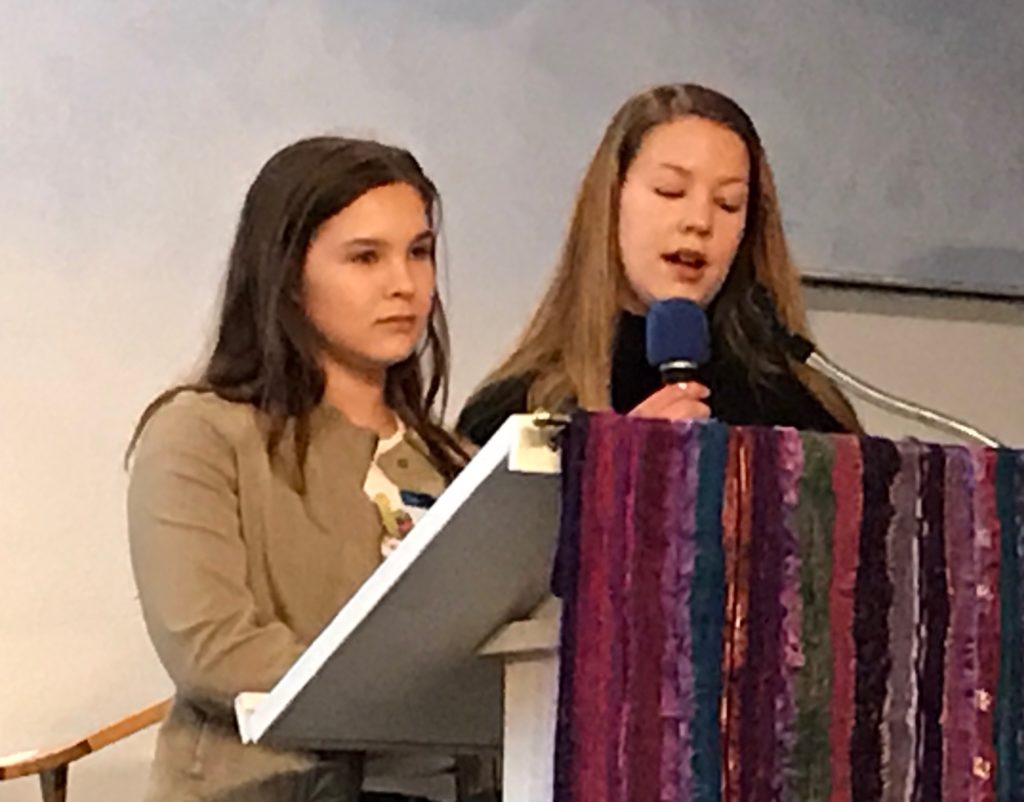
Next on the agenda were local teenage climate change activists Annika Carlson and Berit Schultz, the Co-Presidents of Students for Sustainability at Port Townsend High School.
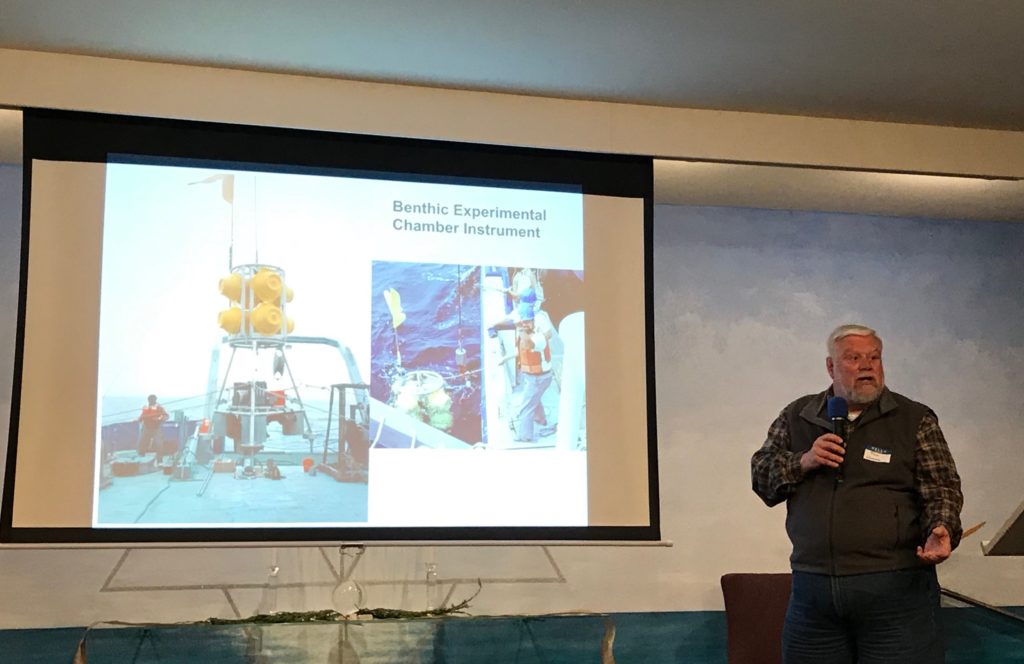
Oceanographer Rich Jahnke spoke of his collaboration with pioneering global warming scientists on research that informed an early IPCC report.
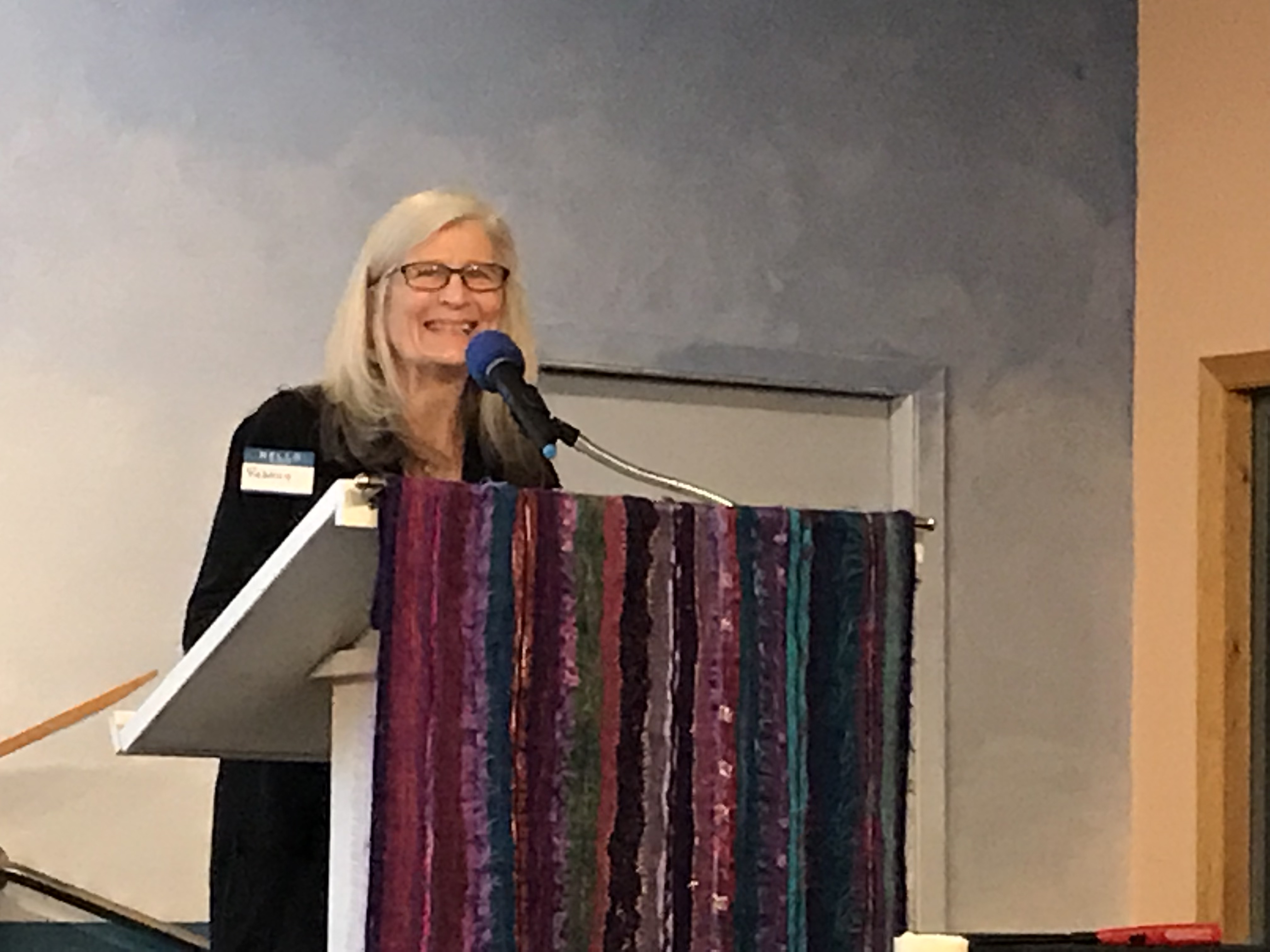
Rebecca Kimball credited her commitment to action to her career as a medical professional and the research and writing of her late husband.
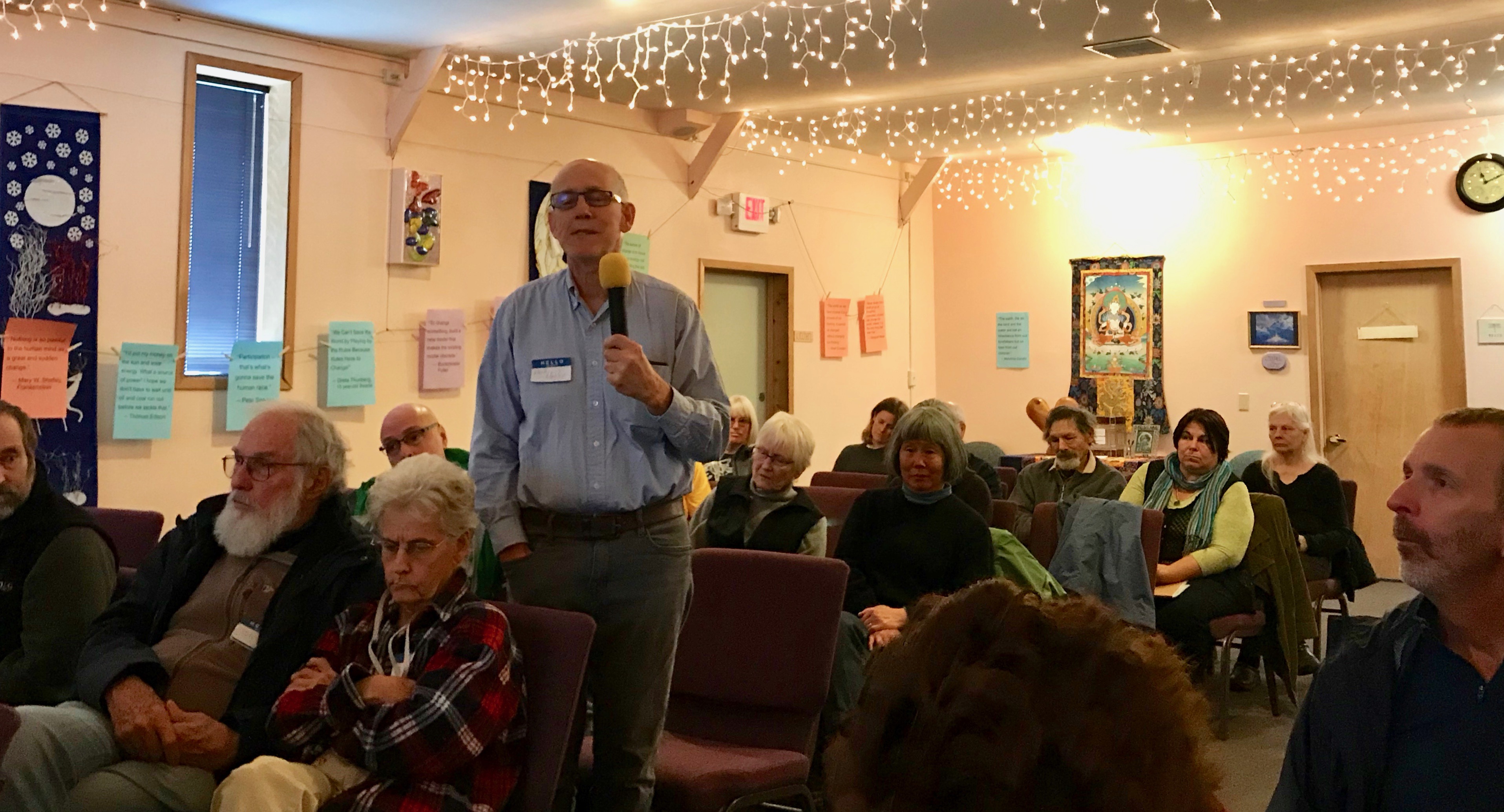
The microphone was passed around to so that participants could share 1-minute stories.
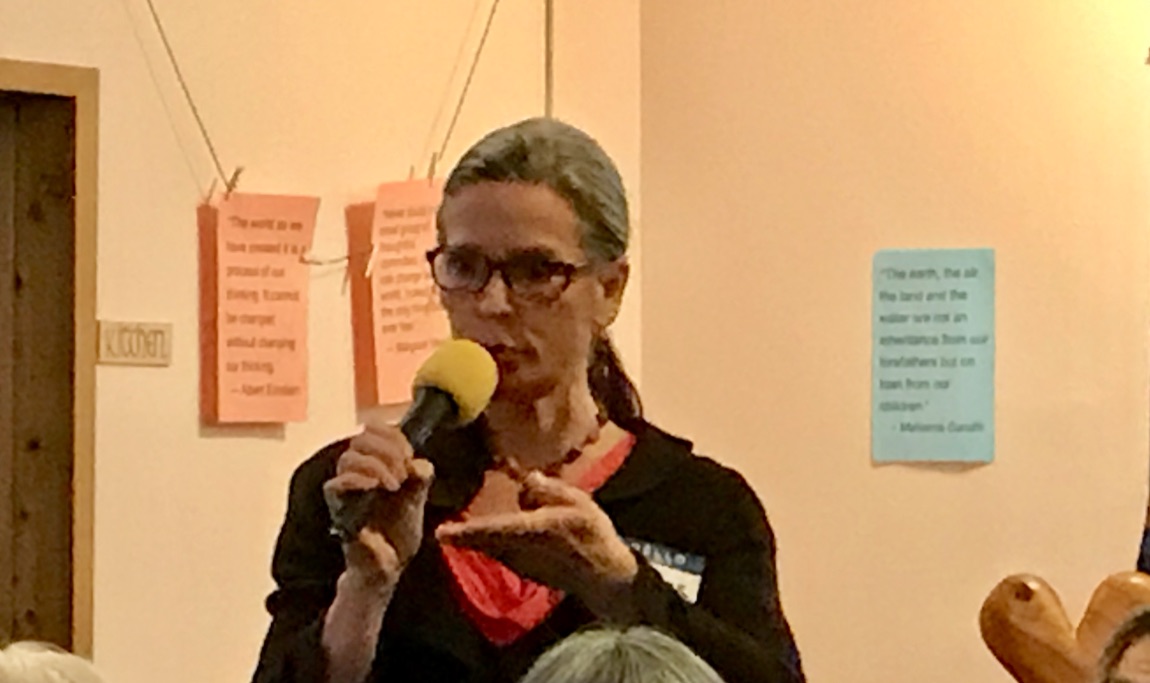
Businesswoman Heather Dudley-Nollette said she’d been an original member of TLab about a decade ago and it was time to get into action.
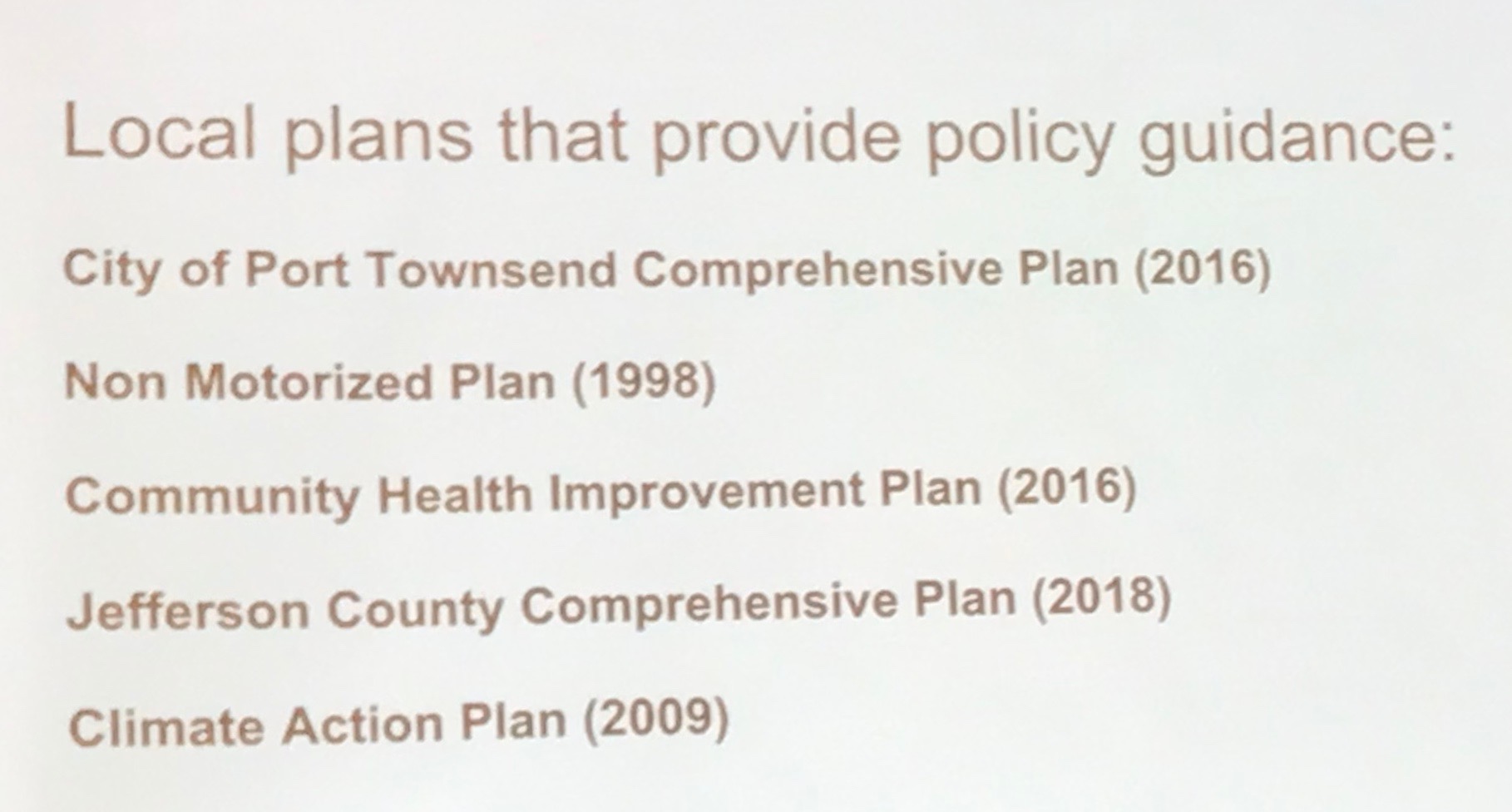
Scott Walker then gave a quick overview of the existing policy documents on transportation and climate change that the City, County and Hospital Commission have developed over the past twenty years.
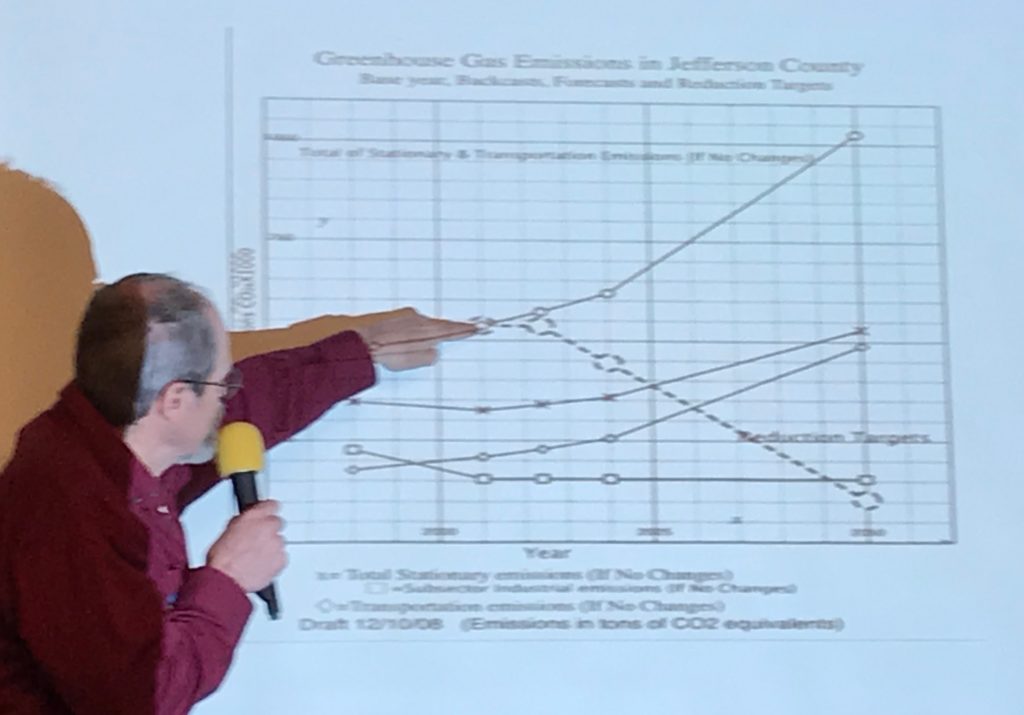
Scott showed data on the City of Port Townsend’s failure to make progress toward lowering greenhouse gas emissions, goals endorsed by local elected officials as policy.
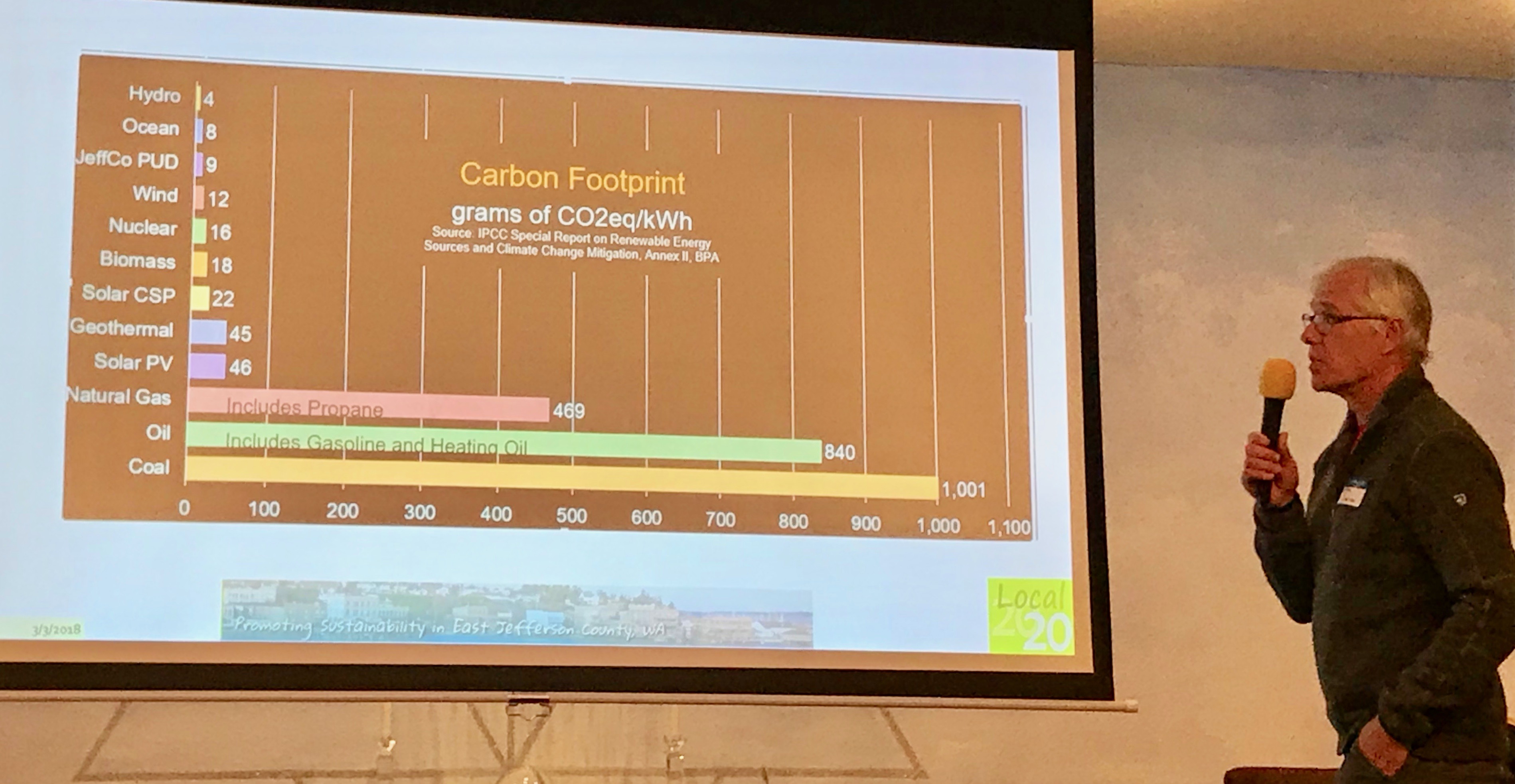
Representing the Local 20/20 Steering Council, Dave Seabrook summarized the impact of various energy sources with a dramatic graph showing the outsized carbon emissions of the three worst sources: coal, oil, and propane.
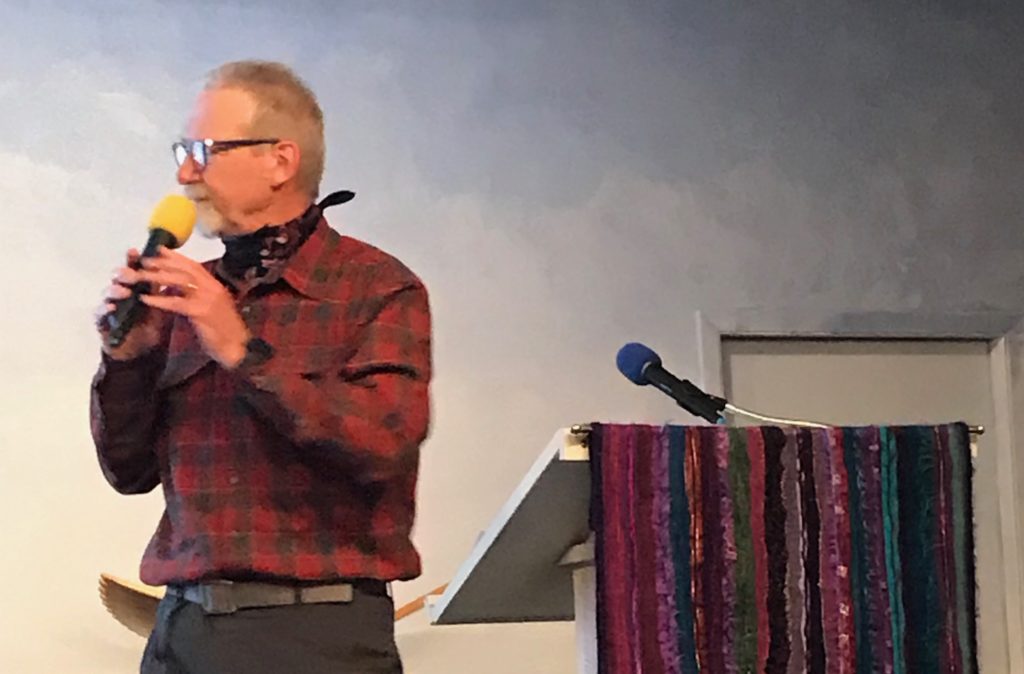
After the review of the policy documents and data, Dave Thielk facilitated an ingenious and elegant brainstorming session in which every participant contributed a policy they would like to work on and every participant had equal say in choosing which ones we’ll prioritize in future actions.
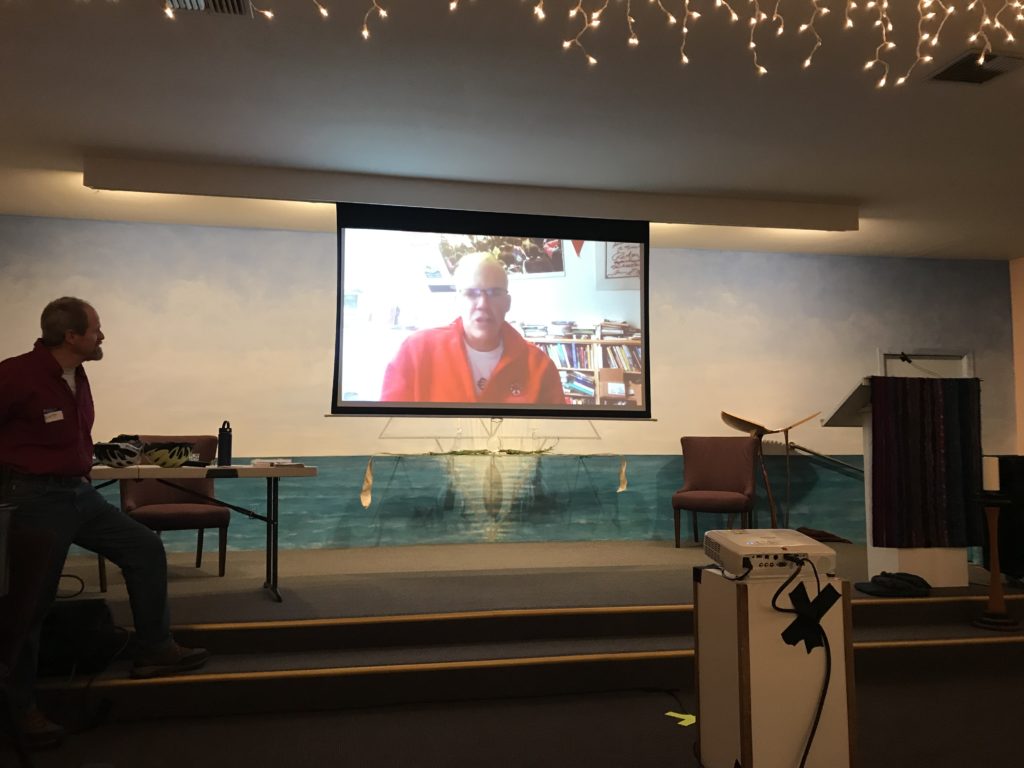
After providing quick, transparent preliminary results of the policy priorities of citizens, Dave introduced the final speaker.
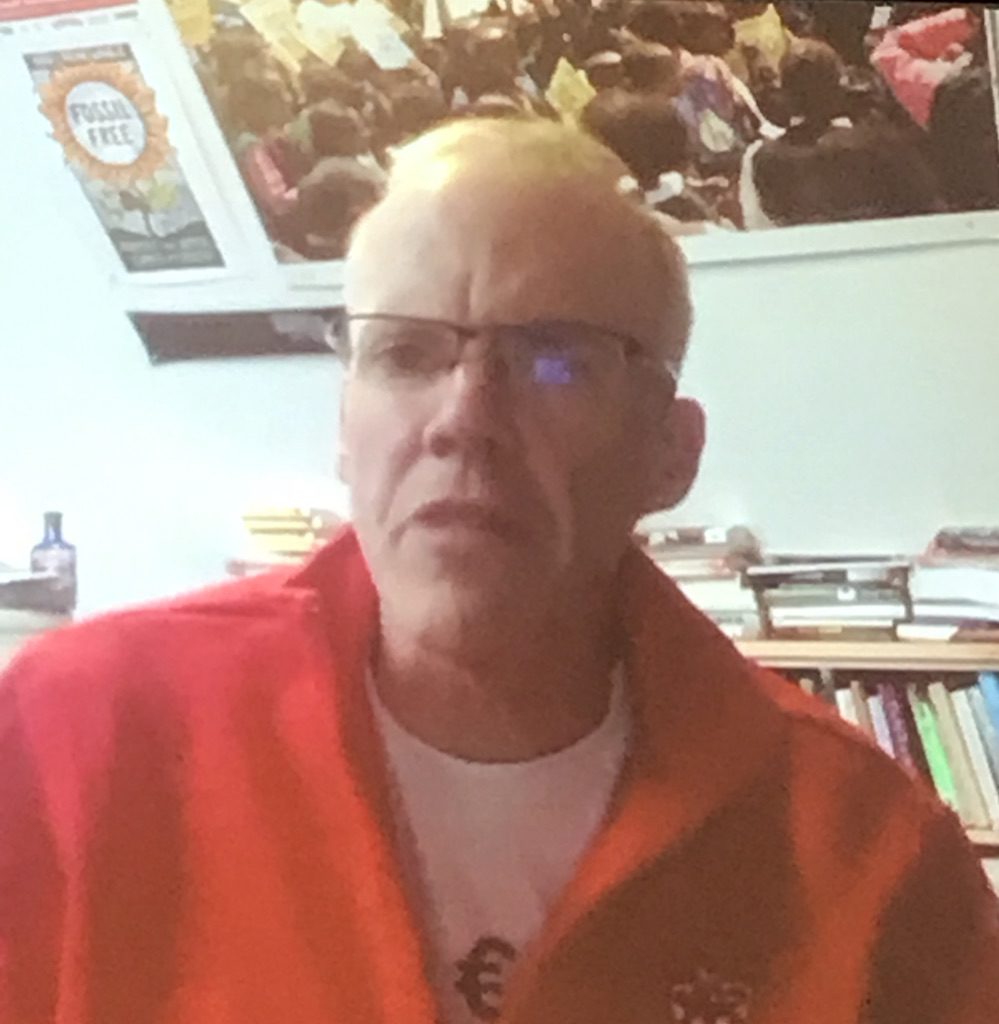
Bill McKibben of 350.org hit all the right notes with his references to the beauty and energy of Port Townsend and to the groundbreaking efforts of people elsewhere in the Pacific Northwest to strategize and move into action in the face of climate disruption.


